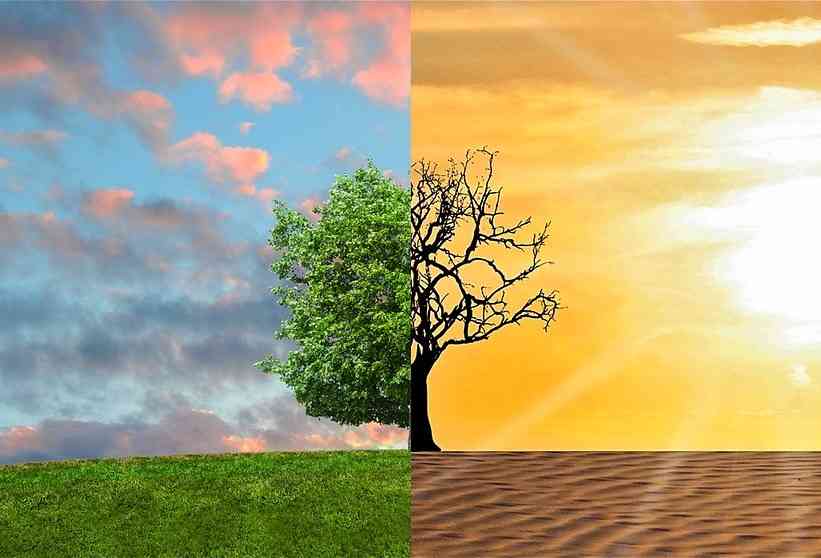
As the climate crisis continues to unfold, it’s crucial that the public has access to accurate, science-based information.
Unfortunately, the spread of misinformation and disinformation around climate change has become a significant challenge.
In this submission, we’ll explore the differences between climate change misinformation and disinformation and discuss how media outlets can improve their coverage of climate change while also working to dispel harmful myths for their audiences
Climate change misinformation refers to false or inaccurate information that is shared, often unintentionally, due to a lack of knowledge or understanding.
Climate change disinformation, on the other hand, is deliberately false or misleading information that is spread with the intent to deceive.
Although the difference is determined by intent, the Intergovernmental Panel on Climate Change (IPCC) notes that regardless of intent, “scientifically misleading information” can have “negative implications for climate policy.”
This is because both climate change misinformation and disinformation can have serious consequences when it comes to public understanding and engagement on this critical and technical issue.
It is essential that media outlets and journalists work to identify and correct these falsehoods, while also providing their audiences with reliable, fact-based reporting.
- COP26 a washout? Don’t lose hope – here’s why
- Out & about: Bright sheds light on Vic Falls Carnival
- Act on Pandora Papers expose
- Pandora Papers: Top Mnangagwa official exposed in biggest leak
Keep Reading
Climate denial is one of the oldest climate disinformation narratives which rejects the causes of climate change or the existence of climate change.
This narrative has been pushed by fossil fuel companies and other vested interests for decades in an attempt to sow doubt and confusion around the scientific consensus on climate change.
Climate denial typically involves making claims that contradict the overwhelming evidence that human-caused greenhouse gas emissions are the primary driver of global warming and climate change.
Deniers may argue that the climate is not actually warming, or that any changes are part of natural cycles rather than human influence.
However, the scientific evidence for climate change is unequivocal. Numerous independent studies, datasets, and lines of evidence all point to a clear human fingerprint on the global climate system.
Denying this established science in the face of such robust evidence is not a credible or defensible position.
Another form of climate disinformation is where individuals and organisations actively work to delay or undermine action on this critical challenge through an insidious form of disinformation known as “climate delayism”. This involves the following:
- Climate delayism encompasses a range of tactics that aim to slow down or derail meaningful progress on climate action. These tactics include:
- Redirecting responsibility: Shifting blame onto individuals or smaller entities rather than addressing systemic change.
- Pushing non-transformative solutions: Advocating for incremental steps that fail to address the scale and urgency of the climate crisis.
- Emphasising the downsides: Exaggerating the potential economic or social costs of climate action while downplaying the devastating impacts of inaction.
- Surrendering: Promoting a sense of helplessness or fatalism, suggesting that climate change is too complex or too late to address.
By employing these methods, climate delayists seek to sow doubt, create confusion, and ultimately delay the critical actions needed to mitigate and adapt to climate change.
It is essential to recognise and call out these tactics to maintain a focused, evidence-based approach to addressing the climate emergency.
The United Nations Environment Programme (UNEP) says although most of the world rightly acknowledges that climate change is real, misinformation is delaying the action that is so vital to countering what is one of the greatest challenges facing humanity and lists the following eight common climate-related myths:
- Climate change has always happened, so we should not worry about it.
- Climate change is a natural process. It has nothing to do with people.
- A couple of degrees of warming is not that big of a deal.
- An increase in cold snaps shows climate change is not real.
- Scientists disagree on the cause of climate change.
- It is too late to avert a climate catastrophe, so we might as well keep burning fossil fuels.
- Climate models are unreliable.
- We do not need to worry about lowering greenhouse gas emissions. Humanity is inventive; we can just adapt to climate change.
Batanai Mutasa
Zimbabwe Environmental Lawyers Association










